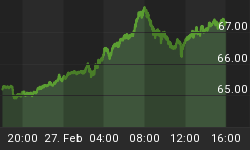Arriving at some event in a taxi in nothing unusual or fancy. But imagine showing up at the polling booth to cast your vote for the next US president in a flying taxi.
Although completely unrelated to presidential elections, 2024 is the year when some companies are expecting to launch the world’s first flying taxi services.
For starters, United Airlines said it would buy 200 flying electric taxis from Archer Aviation, the electric aircraft startup, that it hopes will fly passengers to the airport.
California-based Archer says its taxis will be capable of flying a distance of 60 miles at 150 miles an hour.
As part of a $1-billion order, the US airline plans to team up with regional carrier Mesa Airlines to buy Archer's electric vertical take-off and landing (eVTOL) aircraft with aim to use the eVTOL taxis to fly passengers over congested highways to hub airports.
"With the right technology, we can curb the impact aircraft have on the planet, but we have to identify the next generation of companies who will make this a reality early and find ways to help them get off the ground," United Airlines chief executive Scott Kirby said in a statement.
The company lost more than $7 billion last year as planes have been grounded and has had to rely on government aid to avoid laying off thousands of workers. Yet, the company, and other airlines, pledged to offset all its carbon emissions by 2050.
Archer's aircraft could save 47 percent of emissions per passenger on the commute between Hollywood and LAX.
Industry watchers and proponents see flying cars becoming part of the global transportation network and annual air passenger journeys are projected to reach $7.2 billion by 2035.
As such, Archer is surely not the only company in this segment but one of many joining the flying-transport race.
Also for 2024, when 2024 Olympic Games are scheduled in France, European airline company Airbus is planning to transport the participants and general public by its flying taxi, CityAirbus.
Flying taxi firm Volocopter, a German startup backed by Intel and Daimler, is planning journeys into city centers using its VoloCity electric air taxi.
In early 2019, Geely, the Chinese owner of Volvo and Lotus, acquired Terrafugia, a U.S. flying-car developer that plans to launch its VTOL by 2023. Rolls-Royce also has its own eVTOL concept.
At the same time, ride-sharing business Uber sold off its flying taxi unit Elevate in December.
However, this type of transportation is still in its early stages. The companies involved still face a slew of technical, regulatory and infrastructure challenges in getting their respective air taxi services off the ground.
But make no mistake … it’s coming, and much faster than anyone thinks.
Wall Street might have grown skeptical about investors’ obsession with speculative stocks hawking unproven technologies, but it’s unusually bullish about flying taxis.
“These vehicles will be 100 times quieter, they will be significantly safer, they’ll be significantly cleaner and significantly cheaper,” Wall Street investment banker Ken Moelis told CNBC’s Squawk Alley on Thursday.
By Michael Kern for Safehaven.com
















